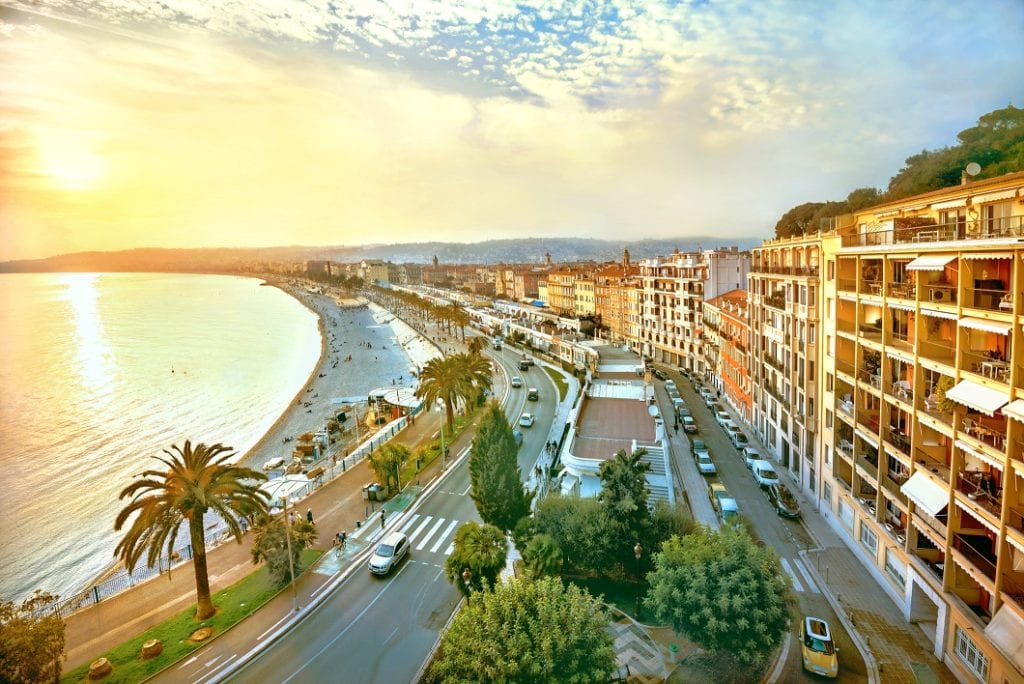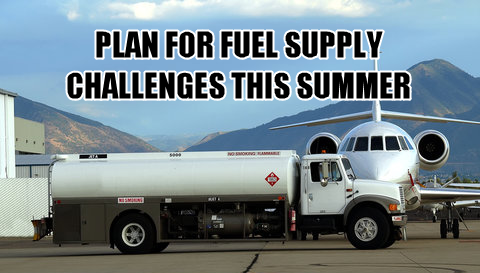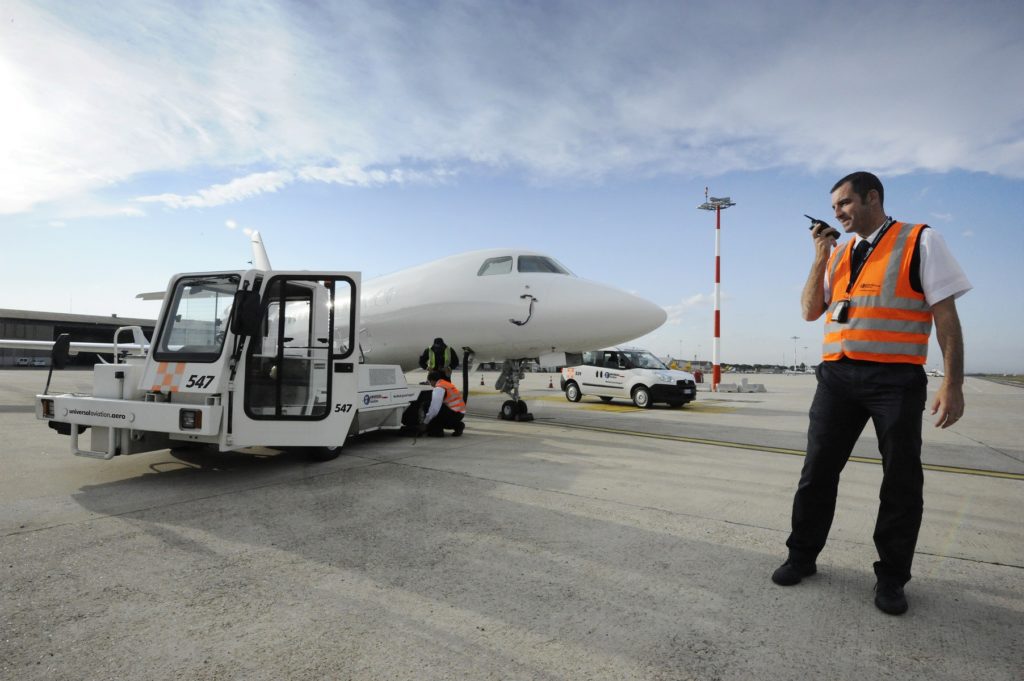Mediterranean 2024 Peak Season Business Aviation Planning Tips

It’s only April, but the new extended “Summer” Peak Season on the Med is getting started. Some Med-area destinations, such as Turkey, are currently reporting 57%+ YOY increases from 2023, and Greece is already at 60 percent capacity for accommodations for the season. Everything really kicks into high gear in May.
In the coming weeks, you can expect demand to start outpacing parking and hotel availability, particularly on popular islands and coastal hotspots across Greece, Italy, Spain, the French Riviera, etc.
There are also some major Billionaire Social Calendar events coming up, such as the Cannes Film Festival and Monaco Grand Prix.
Below are some pro tips to help you manage the madness.

Med Peak Season: Passenger Experience FAQs & Prep
Here are some key questions to be asking so you can manage stakeholder expectations:
- What is the detailed ARR/DEP process?
- Where is CIQ clearance happening – main terminal, GAT, FBO, etc?
- What does the passport hand-off process look like?
- Is there a long ride from where the aircraft is parked to the terminal or FBO? If so, how long will this take?
- Do pax need to wait in the same lines as commercial travelers for CIQ? If so, are there options to separate and/or expedite passengers through the process (compliantly, of course)?
- Does the airport have an option to arrange VIP customs? If so, how long in advance must it be arranged?
- How long does the total CIQ process typically take?
- What happens after CIQ? Will the handler escort pax to the ground transport and does crew need to be with the pax the entire time?
- What is the total estimated time on the ground from landing to leaving via ground transport?
- For departure, how early do the pax need to arrive at the airport?
- How long does the departure process usually take?
- What are the potential issues if the pax wants to leave with items acquired in large quantities (like cases of wine)?
Feasibility-IQ is a great resource to help you answer a lot of this.

To further safeguard your passengers’ ground experience, talk to your Trip Support team about having an A2G Agent supervise your Med missions on the ground, when you aren’t already using Universal Aviation as your ground handler. A2G is really popular during peak season in the French Rivera and across the Med at these smaller airports that have less built-out infrastructure and services – and that routinely struggle with supporting the needs of business aviation during busy season.
Worsening Parking Shortages Across the Med
Drop and Go’s will Likely be Your Best Option
While you probably prefer to park at the same airport as the principal’s destination, Drop and Go’s will likely be the best (or only) option in the Med this summer due to heavy demand and airport restrictions. If you plan for this in advance, your life will be much easier, and you can lock in arrangements sooner.
Think Non-traditional Parking Options
Our recommendation is to take the option of locking in now vs. taking the wait-and-see approach. With that, we expect non-traditional alternates like Milan, Dubrovnik, and even Frankfurt to be good long-term parking options.
One BIG advantage to this strategy: Hotels. Further inland, you’ll have your choice of chains and preferred accommodation options with more flexible cancellation options. In Greece and several other popular destinations, you won’t receive parking confirmation until two weeks before the trip. That’s going to be too late to book most preferred hotels. We’ve seen crew insist on this option and end up having to stay at less-than-ideal hotels in undesirable areas of the city/island.
Other factors to consider here are supply chain struggles, strikes, protests, and fuel availability. These non-traditional parking locations are further away from the epicenter of activity (i.e., MADNESS 🤪) and less likely to experience issues.
A Stretched Supply Chain. Tips for Mitigating Issues.

The Summer demand will put stress on aviation service providers and the supply chain – including airport authorities, handlers, hotels, chauffeurs, catering, etc.
Be aware that these challenges WILL exist this summer. Here’s how you can help mitigate them:
- Plan ahead and make arrangements as soon as the schedule is known.
- Stay within our network (Universal Aviation handling/ Air Culinaire Worldwide catering) if able. We have more control to reduce the risk of error and have more flexibility and speed to make last-minute adjustments across all service delivery areas, when needed.
- Get your parking confirmation prior to arranging hotels and other services that are dependent on where you’ll be overnighting.
- Ask what the ETA is on parking confirmations from the airport authority. For some destinations, you may have to wait until very close to your arrival date, which impacts all related service arrangements. An airport that can confirm sooner may be a better option. We put a cheat sheet for you at the end of this email.
- Avoid making changes. You may lose preferred options you’ve already secured, and it adds more risk of something getting missed.
- Watch for reports on strikes, protests, and fuel supply issues – all this WILL be happening.
- Airline cancelations were a big issue last year. Check recent flight cancelation stats to see which airlines are performing more reliably before booking with them for any crew swaps or connections.
- Set expectations with stakeholders that these challenges will exist this year.
- Try to be patient with minor delays and inconveniences if you experience them.
- Check Feasibility-IQ for the latest intelligence on any destination you are researching or visiting.
Fuel Supply Challenges in Italy and across the Med

- Expect fuel supply shortages at popular European destinations.
- Don’t assume fuel will be available.
- Book fuel eand arly, don’t leauntilt to a Friday. Secure releases a week+ in advance if doable.
- Be specific about how many gallons you need.
- Double-check availability with your supplier prior to departure and have a Plan B in place with an alternate provider, just in case.
- Fuel on arrival while supply is available. Don’t wait until departure.
- Consider tankering fuel at high-demand destinations where supply issues may exist.
Med Peak Season: Charter Ops, Blanket Permits, & Cabotage

Trying to get a last-minute permit for short-notice trips is not ideal. A 12-month blanket permit significantly improves your operating flexibility.
For Greece, our Global Regulatory Services team can help you apply for these blanket permits.
For Spain, CAA doesn’t allow third parties to apply for these, so you’ll need to do this yourself. Keep in mind that Spain only allows three one-shot permits per season, so getting a blanket permit is advised. Warning: the process to apply is onerous.
We’re also starting to see requests for trips that would be considered cabotage. Nearly all countries in the EU, including all of the popular Med hotspots, have some variation of cabotage, meaning that for any domestic legs, you cannot carry passengers that are not associated with your international legs.
Ramp inspections are common, and violating cabotage rules could result in significant fines and denial of future operations.
Check with us on your specific flight scenarios.
In-flight Catering Woes and Tips for Peak Season

Around the world, we’re receiving more reports from operators experiencing challenges with in-flight catering. Supply chain shortages are wreaking havoc on sourcing, and providers are struggling to staff at levels needed to meet the demand. Hours of operation among providers are also continually changing, highlighting the importance of ample lead time for orders to ensure that the caterer is open and available.
Our catering experts at Air Culinaire Worldwide suggest the following:
- Avoid last-minute orders and changes. Order at least two full days in advance (local time) for domestic flights and five full days in advance for international flights.
- Manage your pax expectations by channeling them into cuisine that is commonly available in that area and keeping your orders simple. Avoid ordering off-menu, last-minute, or hard-to-find items, as this will lead to delays in confirming the order.
- Be careful when ordering from restaurants. It adds complexity to the service delivery. If you order food from a restaurant, be aware that there could be safety and packaging issues, as most restaurants are not experienced with preparing food for in-flight. Even if your order is through your caterer, this could lead to delays as the caterer will need to pick up the food, chill and repackage the order to maintain proper food temperatures.
- Be wary of new caterers. There’s been a flurry of new, untested caterers with no track record of safety, offering service in recent months.
- Limit the use of food delivery services. These systems were designed for individual use, not commercial use. They do not delivery consistently and have no means to advise when an order will not be delivered, which happens frequently.
To mitigate some of these issues, we recommend staying within our Air Culinaire Worldwide network as much as possible to avoid many of these issues, and it gives us better control over the catering order fulfillment versus using a non-network caterer.
Understand the Passenger Ground Experience
Here are some key questions to be asking so you can manage stakeholder expectations:
- What is the detailed ARR/DEP process?
- Where is CIQ clearance happening – main terminal, GAT, FBO, etc?
- What does the passport hand-off process look like?
- Is there a long ride from where the aircraft is parked to the terminal or FBO? If so, how long will this take?
- Do pax need to wait in the same lines as commercial travelers for CIQ? If so, are there options to separate and/or expedite passengers through the process (compliantly, of course)?
- Does the airport have an option to arrange VIP customs? If so, how long in advance must it be arranged?
- How long does the total CIQ process typically take?
- What happens after CIQ? Will the handler escort pax to the ground transport, and does crew need to be with the pax the entire time?
- What is the total estimated time on the ground from landing to leaving via ground transport?
- How early do the pax arrive at the airport for departure?
- How long does the departure process usually take?
- What are the potential issues if the pax wants to leave with items acquired in large quantities (like cases of wine)?
Feasibility-IQ is a great resource to help you answer a lot of this.




